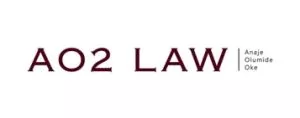Background:
Lagos State (the "State") currently has about 50% of the COVID-19 cases in Nigeria. Considered the 5th largest economy in Africa, the State with its estimated 20 million population, which is about 10% of Nigeria's population, is a significant stakeholder in Nigeria's ability to stem the tide of the COVID-19 Pandemic. In this brief, we review the State's Infectious Diseases (Emergency Prevention) Regulations 2020 (the "Regulations") which became effective on March 27, 2020, following the approval and signature of Mr. Babajide Olusola Sanwo-Olu, Lagos State's Executive Governor.
|
A. Highlights + Features: |
||||
|
Title: |
The Infectious Diseases (Emergency Prevention) Regulations, 2020. |
|||
|
Principal Purpose: |
a) To ratify all acts done and geared at curtailing the spread of COVID-19 prior to the commencement of the Regulations. b) To prevent and contain the spread of COVID-19 within the defined areas ("Local Area"). |
|||
|
Application |
Lagos State, Nigeria. |
|||
|
No. of Sections: |
18 |
|||
|
B. Summary of Major Provisions of the Regulations and Remarks: |
||||
|
S/N |
Relevant Provisions |
Synopsis of the Provision |
Remarks |
|
|
1. |
Section 4 |
The applicable Local Area includes the following, that is, all: a. Local Government Areas (LGAs) and Local Development Areas (LDAs) in the State; b. areas surrounding the Murtala Mohammed Airport Complex, especially the international, domestic, cargo and private wings; c. areas surrounding both the Apapa Port, Tin Can Island Port and the Apapa and Kirikiri Lighter Terminals; d. jetties and other ports within the geographical boundaries of the State; and e. entry ports into the State within the meaning of the Federal Quarantine Act. |
||
|
2. |
Section 5 |
COVID-19 is labelled a Dangerous Infectious Disease which constitutes a serious and imminent threat to the public health of the people in the Local Area. |
Section 2 of the Federal Quarantine Act sets out Dangerous and Infectious Diseases in Nigeria. The Regulation has declared COVID-19 as one of such in Lagos State. |
|
|
3. |
Section 6 |
The Governor may direct that: a. a person who is potentially infectious including a child should report at a designated place for screening and assessment; b. a potentially infectious person who fails or refuses to go to a place specified for screening and assessment be forcefully removed; and c. a potentially infectious person including a child should go into isolation for an initial period of 14 days. In the case of an order against a child, the Governor's directions are to be carried out by the child's parent or guardian. While provisions for the proper care of potentially infectious persons placed in an isolation center are to be borne by the State, this will not be the case in the instance of a person or child that is forcefully removed as both the cost of removal and isolation will be borne by the person or child's parent/guardian. |
The Governor is empowered to, where necessary, direct that anyone who is potentially infectious, be forcefully removed and placed in an isolation centre or other designated place. The question, who is a "potentially infectious" person has apparently been left to the Governor to decide. |
|
|
4. |
Sections 7, 8, 9 and 10 |
The Governor may: a. restrict movement within, into, or out of the Local Area, except for the transportation, movement or procurement of medical supplies, other essential supplies and essential services personnel; and b. restrict and prohibit gatherings; c. impose requirements for obtaining written approval for gatherings; d. order the temporary closure of public places where gathering of persons occur; e. order the temporary closure of markets save for essential needs markets, and impose restrictions on the number of persons that may be present in the public place; f. direct a relevant security agency to breakup any gathering of persons in the Local Area and take all persons who do not comply with the Governor's directives into custody for the purpose of screening, assessment or isolation; g. restrict the conduct of trade, business and commercial activities for such period as may be deemed necessary; h. order the closure of public, educational and vocational institutions for such period as may be deemed necessary. |
This is largely a derogation from the fundamental right to free movement within Nigeria. Such derogation is constitutionally-recognized under Nigerian law. |
|
|
5. |
Section 11 |
The Governor may give direction against the offence of hoarding of or refusal to supply food, drugs and other essential goods and services. Such direction may include that such food, drugs and other essential goods be seized, forfeited or used for alleviating the supply needs in the Local Area. |
Save for the application of Regulation 17, it would appear that the Regulations creates an offence in Regulation 11 for which it has not prescribed a conventional punishment for. It is noteworthy however that relevant provisions of the Federal Competition and Consumer Protection Act, 2018 may, where the facts are right, be invoked to punish an offence of the conspiracy or arrangement to unduly enhance the price of any goods or services. |
|
|
6. |
Section 12 |
The Governor can specify what manner and conditions which the remains of a person infected with COVID-19 shall be transported, stored and disposed of, including an order for the cremation of the remains. |
||
|
7. |
Section 13 |
The Governor may prohibit the transmission or dissemination of false information on COVID-19. The Governor may also prohibit persons from promoting unverified or unapproved cures, vaccines or similar medicinal items that purport to cure, alleviate or reduce instances of persons infected or believed to be so affected. |
||
|
8. |
Section 14 |
The Governor may direct that medical practitioners and health workers notify the Governor, through the Ministry of Health or other designated health officer, of persons with COVID-19 symptoms. |
||
|
9. |
Section 15 |
Other than the express powers so far highlighted, the Governor has the general powers to impose any restriction, requirement or give any directive he deems necessary to curtail the spread of COVID-19 and may particularly in this regard: a. order any person to stay at home for a defined period; b. deploy law enforcement agents to enforce directives on restriction of movement or access to public places; c. allocate spaces for or construct isolation centres and sanitary stations or anchorages; d. subject to the payment of adequate compensation, take over possession of any property to use as isolation centres and as storages for pharmaceutical and medical equipment or supplies. |
||
|
10. |
Section 16 |
The Governor may exercise any of his powers directly or through any person authorized in writing. The powers may be exercised orally, in writing or in any other manner the Governor considers necessary. |
||
|
11. |
Section 17 |
The Regulations creates 4 categories of offences which are each punishable with a fine and or imprisonment under the existing laws including the Federal Quarantine Act and Lagos State's Public Health Law. The offences are, the: a. failure to comply with a restriction, prohibition or requirement imposed under the Regulations; b. provision of false or misleading information (whether recklessly or intentionally) with a view to causing panic or disaffection among members of the public; c. obstruction of any person from carrying out his duties under the Regulations; and d. doing anything contrary to the Regulations. |
It is arguable if the Regulations can create offences under any substantive law, particularly where the substantive law has not expressly provided that offences can be so created by Regulations. While the Governor may immediately enforce his powers or directives by seizures, forfeitures or direction for the utilization of seized goods to alleviate supply needs as provided by Regulation 11, it is a different case where a court of record is called upon to convict a person further to the provision of Regulation 17. |
|
Our Thoughts in Conclusion:
The Preamble to the Regulations sets out the facts that informed the Regulations. From February 27, 2020 when the first COVID-19 case was identified in Ogun State, Nigeria and the index patient was brought to Lagos State for treatment, to March 21, 2020 when COVID-19 cases in Lagos State began to spike on account of a number of persons who flew back into Nigeria between March 13, 2020 and the said March 21, 2020 when the Nigeria's international airspace was finally closed to the landing of passenger flights into Nigeria; the Governor had tried to manage the COVID-19 Pandemic with his admonitions, suggestions and directives, especially on social distancing, respiratory hygiene, hand-washing and other World Health Organisation recommendations. Thus, it was that by March 27, 2020, exactly one month after the index case, the number of COVID-19 cases were on the rise while the medical and related facilities/infrastructure for handling the Pandemic remained inadequately constant. The Governor required a more stringent approach, hence the Regulations; with the objective to save lives, reduce ill-health and relatively preserve the State's economy.
The foregoing explains the mischief of the Regulations, but it may not save it, where issues bothering on some fundamental rights are concerned. These fundamental rights are, the: right to life, right to dignity of person, right to personal liberty, right to fair hearing, right against discrimination, and the right to acquire and own both immovable and moveable property in Nigeria; all of which rights cannot be derogated from by the Regulations. Even an Act of the National Assembly of Nigeria is severely limited on the extent to which it can derogate from the rights to life and personal liberty. Accordingly, it is important that the Regulations be carefully administered, otherwise, where the stated fundamental rights are unlawfully infringed as to occasion quantifiable damage, the State risks having to settle established legal claims or judgments in the aftermath of COVID-19. Indeed, it is hoped that COVID-19 should find no ally in legal claims in its current onslaught on the economy of Nigeria's Centre of Excellence.
The content of this article is intended to provide a general guide to the subject matter. Specialist advice should be sought about your specific circumstances.


